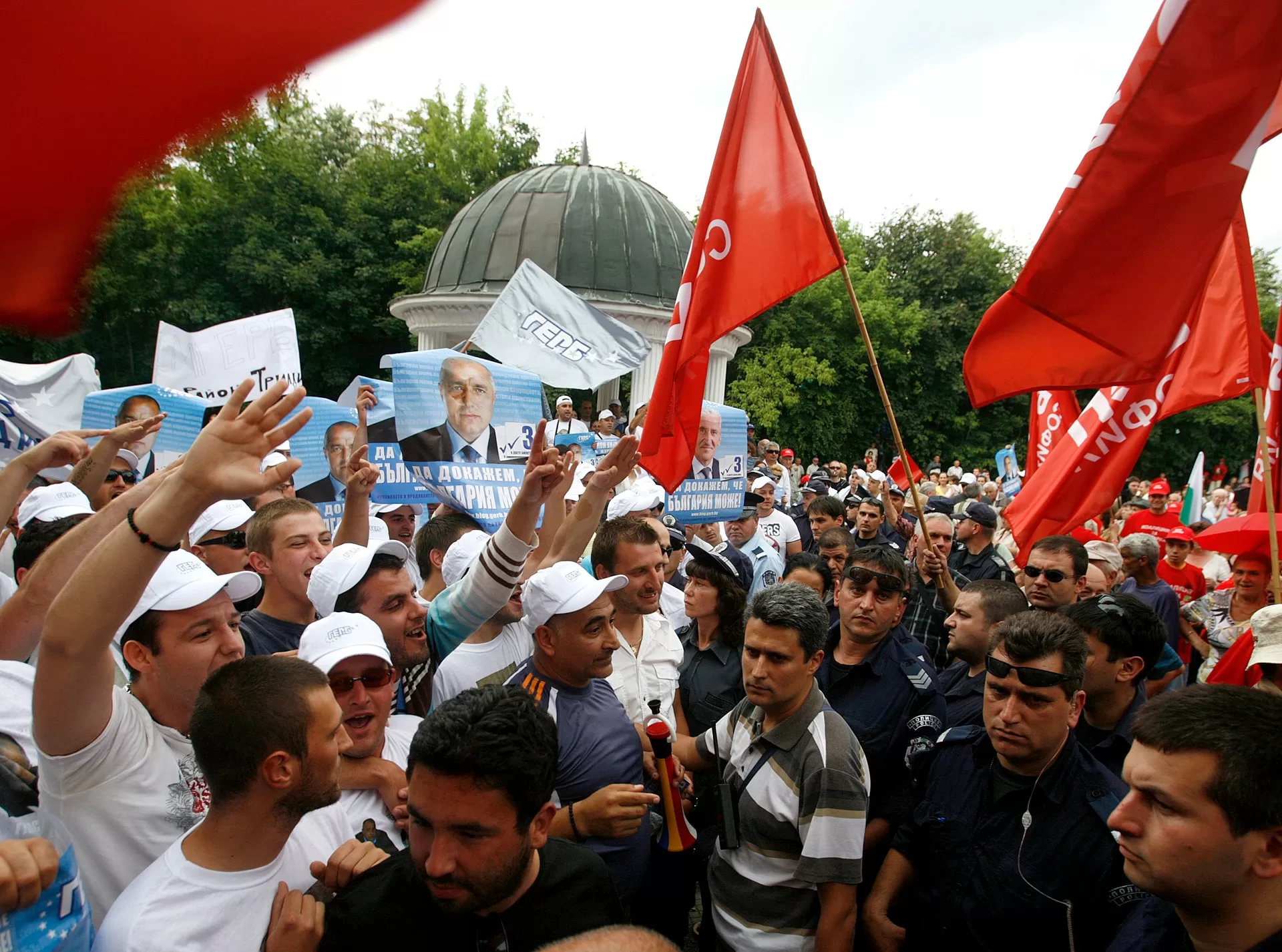GERB party in the lead in parliamentary elections, but falls short of majority needed to end political instability.
Bulgaria’s centre-right GERB party was in the lead after a parliamentary election on Sunday, an exit poll showed, but has fallen short of a majority that would put an end to the country’s political instability.
The Alpha Research poll showed Citizens for European Development of Bulgaria (GERB) winning 26.4 percent of the votes, while reformist We Continue the Change (PP) was seen coming second with 14.9 percent of the votes. The pro-Russia ultra-nationalist Revival party was set to come third with 12.9 percent of the vote.
In the seventh such vote in four years, former conservative Prime Minister Boyko Borisov’s GERB party repeated its performance in the previous ballot last June by winning between 25 and 27 percent of the vote on Sunday, according to the polls.
Sunday’s election was triggered by the failure of Bulgaria’s political parties to agree on forming a coalition government after an inconclusive election on June 9.
The European Union’s poorest member country has been at a standstill since 2020, when massive anti-corruption protests brought down Borisov’s cabinet.
But there is a high chance that GERB will yet again struggle to find partners to govern in the country’s extremely fragmented parliament, where seven to nine parties are expected to be represented.
GERB would get 74 seats in the 240-seat parliament, while PP would get 42 seats, and Revival 36 seats, according to the Alpha Research poll.
“GERB has the responsibility to form a government, let’s see what they propose,” said Nikolai Denkov, former prime minister and member of the PP party. “We are going to wait for the final results.”
Bulgaria needs a period of stable, well-functioning government to accelerate the flow of European Union funds into its creaking infrastructure and nudge it towards adoption of the euro.
Plans to join the eurozone have already been pushed back twice because of missed inflation targets. Accession is currently slated for January 25, 2025.
Compared to the last election, voter turnout appeared to have slightly increased to 35 percent one hour before the polls closed.
In June, voter turnout plummeted to just 34 percent – the lowest since the end of communism.
According to a recent opinion poll, about 60 percent of Bulgarians surveyed view the political deadlock as “extremely alarming”.
Many voters said they feared further uncertainty ahead.
“What was expected, happened more or less… I think we are going to have more elections,” said Vassil Vasilev, 60, after hearing about the exit poll.
